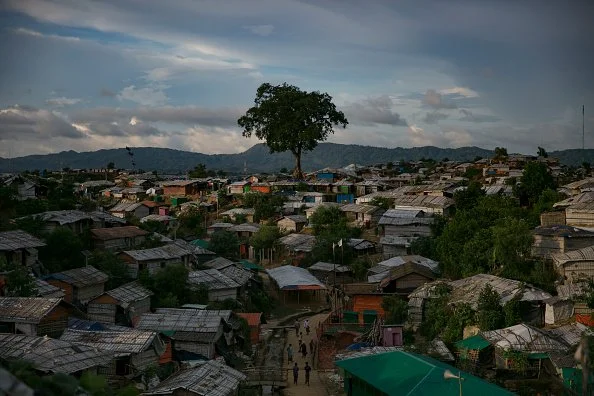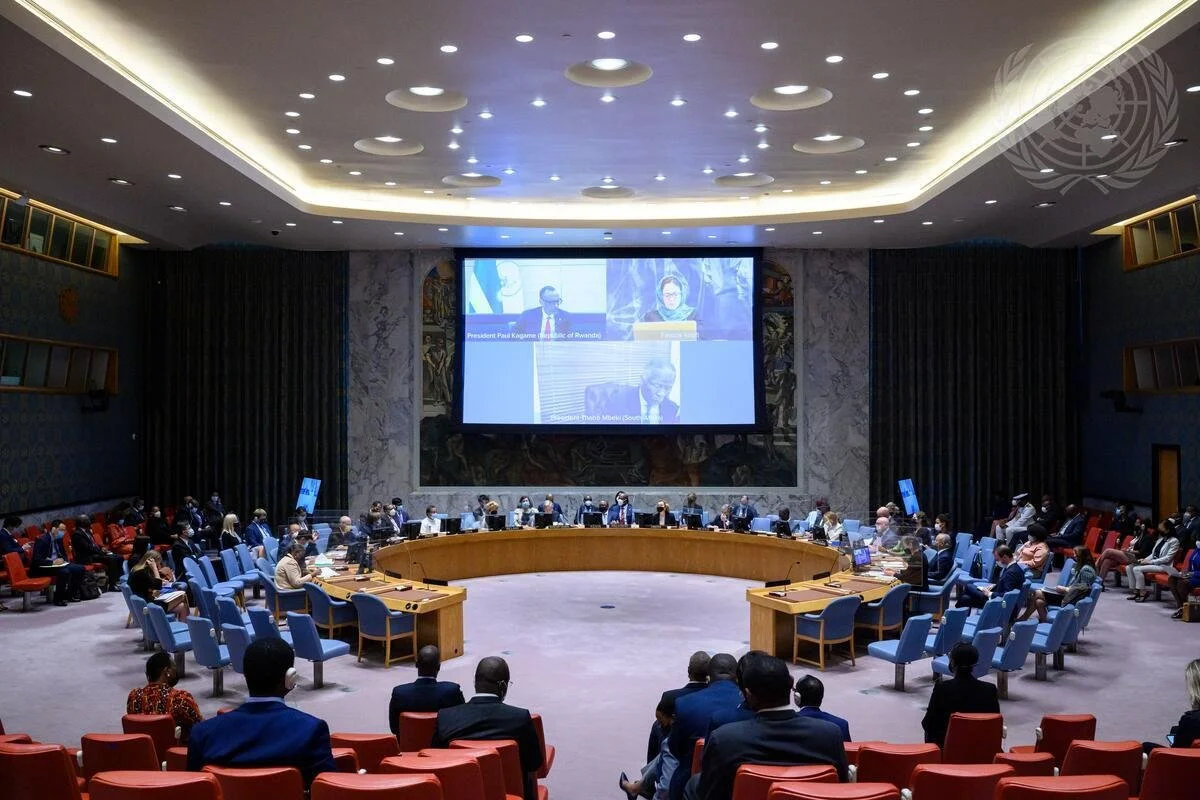
30 Years After the Genocide in Rwanda: Gender, Accountability and Atrocity Prevention
What is the legacy of Rwanda and other atrocity crimes, and how are sexual and gender-based crimes addressed in today’s conflicts? This public event addresses accountability efforts and sexual violence, as we commemorate the 30th anniversary of the Rwanda genocide.
The 1994 genocide against the Tutsi people in Rwanda is a stark example of the international community’s failure to prevent mass atrocity crimes. A significant legacy of the Rwanda genocide was the accountability efforts at the local, national and international levels. The International Criminal Tribunal for Rwanda (ICTR) delivered the first international conviction of a person for the crime of genocide, and firmly established sexual violence as an act of genocide.
Despite these developments, sexual and gender-based violence continues to plague violent conflict.

Justice Denied - Coming to Terms with History in Post-Conflict Societies
As we mark the 20th anniversary of the entry into force of the Rome Statute of the International Criminal Court, this conference draws lessons from contemporary and historical cases, and explores the long-term consequences of limited, delayed or denied justice.

Atrocity prevention in an illiberal world. The role of a small state in the UN Security Council. Open seminar.
How can a small state such as Norway, with its seat in the UN Security Council, prevent atrocities like genocide and crimes against humanity? Is the Responsibility to Protect (R2P) doctrine too contested in the current world order? What are the lessons learned from other elected members of the UN Security Council? The Norwegian Center for Holocaust and Minority Studies hosts an open seminar to discuss these timely and urgent matters. The seminar is hosted by Dr. Ellen Stensrud, researcher at the Norwegian Holocaust Center.
Keynote speaker is Karen Smith, former UN Special Adviser for the Responsibility to Protect.
The seminar will be streamed here.
Agenda
10-10.30 Coffee and registration
10.30: Seminar
Keynote: Karen Smith, former Special Adviser on the Responsibility to Protect: Atrocity prevention, the responsibility to protect and the changing world order.
o Discussant: Cecilie Hellestveit, Norwegian Academy of International Law.
o Discussant: Angela Muvumba Sellström, Nordic Africa Institute.
o Discussant: Kristoffer Lidén, PRIO.
12.30: Lunch
Keynote speaker
Karen Smith was appointed as Special Adviser of the Secretary-General on the Responsibility to Protect on 7 January 2019. Currently a lecturer in International Relations at the Institute for History at Leiden University, Netherlands, and an honorary research associate at the University of Cape Town, South Africa.
Background
In 2020, the world marked the 15th anniversary of the unanimous adoption of R2P. R2P was meant to catalyze national and international action to prevent atrocities as witnessed in Rwanda and Srebrenica in the 1990s. However, R2P has lost some of its universal support – in part due to the controversies surrounding the international R2P intervention in Libya and in part because governments are not able or willing to implement the promise R2P makes. Political actors and diplomats may prefer other concepts, such as Protection of Civilians (PoC). At the same time, calls from activists in Myanmar show the normative strength of the R2P principle, across regional divides.
Regardless of the status of R2P, future occurrence of mass atrocity crimes will require new prevention efforts and protection of populations at risk. In this seminar we ask what role a small state like Norway can play to prevent mass atrocities, against the backdrop of an increasingly illiberal world order.
This project on Nordic approaches to atrocity prevention at the UN is co-organized by Martin Mennecke (University of Southern Denmark), Ellen E. Stensrud (The Norwegian Center for Holocaust and Minority Studies) and Angela Muvumba Sellström (The Nordic Africa Institute in Uppsala). We have received funding from the Nordic research councils in the humanities and social sciences (NOS-HS) to conduct workshops and seminars on Nordic approaches to R2P and atrocity prevention. We seek to identify characteristic features and contribute to enhanced policies and practice, both in the individual countries and, if possible, as part of a common Nordic approach.
For questions about the seminar, contact us here.

Nordic Approaches to R2P and Atrocity Prevention: What is Norway’s Contribution in the UN Security Council? Closed workshop.
On 8 November 2021, the Norwegian Holocaust Center will host a workshop, by invitation only, which will examine Norway’s approach to R2P, particularly in light of its current seat in the UNSC. We propose an explorative discussion to better understand two overarching issues: First, the potential and obstacles to atrocity prevention at the UN for an elected UNSC member. Second, we hope to gain an understanding of how Norway sees R2P and atrocity prevention more generally, also regarding related policy areas, such as “protection of civilians” and “peace diplomacy”. The more general debates on R2P, the dynamics of the Security Council, and other avenues of protecting civilians will serve as a backdrop for the discussions. The workshop will be by invitation only.
The workshop is part of a project on Nordic approaches to atrocity prevention, funded by the Joint Committee for Nordic research councils in the Humanities and Social Sciences (NOS-HS).
For inquiries about this project, please use this form.

Mass Atrocities, Prevention and Punishment: Lessons learned from the Yazidi and Rohingya cases
Foto: Håvard Bjelland
The Rohingya and Yazidi cases are among the most recent examples that fulfillment of the double goal of preventing and punishing mass atrocities are still daunting. On 6 September, we discuss why and what a way forward may be.
The UN Genocide Convention was adopted in 1948 with the double goal of preventing and punishing the most serious atrocities. The Rohingya and the Yazidi cases are among the most recent examples that fulfillment of these goals are still daunting. Why were the mass atrocities against these groups not prevented? Why is accountability still pending?
To address these questions, The Norwegian Center for Holocaust and Minority Studies in Oslo will host an open international conference on September 6th. The conference will address the issue of prevention, documentation and accountability for a broad audience, addressing the Rohingya and Yazidi cases comparatively.
International speakers include:
Nickey Diamond, Fortify Rights , Myanmar
Sebastiaan Verelst, Human Rights Officer, OHCHR, previously UN Fact Finding Mission to Myanmar
Sareta Ashraph, Chief Analyst on the UN Commission of Inquiry on Syria
Dr. Mamou Farhan Othman, Vice-Dean, Institute of Psychotherapy and Psychotraumatology, University of Duhok, Iraq
The conference is organized by HL-senteret with support from the Norwegian Ministry of Foreign Affairs. The conference will be held in English.

The UN Genocide Convention at Seventy. The Politics of Mass Atrocity Prevention
To mark the seventieth anniversary of the UN Convention for the Prevention and Punishment of the Crime of Genocide, the Norwegian Holocaust Center in Oslo is organizing an international interdisciplinary conference. Financed by the Norwegian Ministry of Foreign Affairs, the conference aims to further our understanding of genocide and mass-atrocity prevention.
Topics include the relationship between law and politics; the rhetoric of genocide; non-state perpetrators of genocide; comparative research about causes of mass violence and implications for prevention; tools for prevention including early warning and R2P; and case studies of effective de-escalation of violence.
Find the Complete Conference program here.
Keynote speaker:
Professor William A. Schabas is professor of international law at Middlesex University in London. He is also professor of international human law and human rights at Leiden University, emeritus professor of human rights law at the National University of Ireland Galway and honorary chairman of the Irish Centre for Human Rights, and invited visiting scholar at the Paris School of International Affairs (Sciences Politiques).
Watch day one of the conference here.
Watch day two of the conference here.




